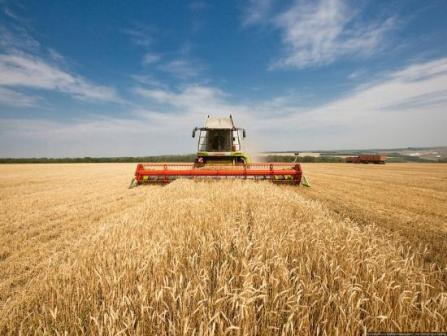Preliminary wheat yield in the black sea was better than expected

Traders are concerned about the future fate of wheat crop due to dry weather in April and may that reigned in the South and East of Ukraine and in the regions of winter wheat production in Russia, although significant reserves of soil moisture and good crop condition after the winter have reduced the negative impact of the adverse conditions.
the First data harvesting wheat in the South of Ukraine, which suffered most from the drought, are showing normal yield, although below togoro. In the Central and Western regions, the yield expected at the level of last year.
As of June 25, domestic farmers have collected 1.7 million tonnes of grain from 559 thousand hectares with an average yield of 3.07 t/ha.
in Particular produced:
winter barley – 1.1 mln tonnes from 355 thousand hectares with the average yield of 3,2 t/ha,
pea – 29 thousand tonnes to 19 thousand hectares with a yield of 1.56 t/ha.
- winter wheat 552 thousand tonnes area of 185 thousand hectares with an average yield of 2.98 t/ha,
in addition, in Zaporizhia, Kherson, Odesa, Mykolaiv, Vinnytsia and Donetsk oblasts started harvesting of winter rape, of which 75 thousand hectares harvested 130 thousand tons with an average yield of 1.74 t/ha.
In the Krasnodar region threshed is 98.2 thousand hectares (or 7% of the target), the yield of winter barley is 6.3 t/ha, winter wheat – 6.1 MT/ha.
From the area of 2,1 thousand hectares (13% of plan) produced 4.7 thousand tons of winter rapeseed with a yield of 2.23 t/ha.
Experts Thomson Reuters Agriculture Research evaluate crop Russian wheat at 72 million tonnes against the projected Agritel and USDA in the June report of 68.5 million tonnes, a Rating generated by modeling on the basis of satellite imagery and data about current and future weather conditions.
In comparison with the last year winter wheat crop will decrease by 10 million tons and spring – a minimum of 2 million t. However, the situation may change, because the plants are in the early stages of development.


